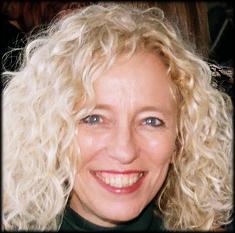A large part of the research funded by the Ministry of Science is in the fields of computing and high-tech," says the new Chief Scientist at the Ministry of Science, Prof. Mina Teicher

Although the Ministry of Science does not determine the content of studies at universities, nor does it handle applied research, it does have an impact on the knowledge-rich industry in the medium and long term. Matan Vilnai, the Minister of Science and Technology, decided to appoint Prof. Mina Teicher as the Chief Scientist of the Ministry of Science and Technology. Vilnai emphasized that he is proud that a woman who is a renowned scientist was chosen for the position.
The chief scientist will lead together with David Leffler, the director general of the ministry, the main objectives of the ministry, including the design of Israel's national science policy, the promotion of international scientific relations, the reduction of gaps in society through the expansion of scientific knowledge and, of course, the advancement of women in science.
Teicher is a professor of mathematics, specializing in algebraic geometry with applications in brain research, computer vision, cryptography and theoretical physics (the structure of the universe). She heads a research group numbering about 27 postdoctoral students and graduate students, and manages the world's first research center for braid theory in geometry.
In response to the DailyMaily's question, Prof. Teicher said that a large part of the research funded by the Ministry of Science is related to high-tech and all related issues in the field. "The office handles research at the basic stage, not at the applied stage," she added.
What are the areas you will prioritize?
"We are currently in the phase of formulating the issues that will be given priority. Although there are quite a few issues that I see priority in promoting, I am building a list of those issues that have the national priority, with the relevant agencies, including the National Research and Development Council and the National Academy of Sciences. Then, in the office, together with the minister and the CEO, we will see which issues will be addressed from the list, which will be announced, by the way, at the next Rehovot conference.
One of the flagship projects of the office is the theme of space. Another important issue is science and the community - to work for more students to turn to professions of science and technology, nanotechnology, biotechnology and computing. Of course, the ministry is not a university, in which the issues are raised by the researchers within the framework of academic freedom. We have priority issues. The ministry also has a touch on the government's R&D and it will also be directed according to the needs and according to the priorities."
Is it true that the budget of the Ministry of Science is the smallest among the government ministries?
"I really hope that the budget will increase. Beyond that, the ministry also outlines a national science policy regardless of the budget. The impact is not only through direct funding."
Will the time be enough? There is about a year left until the elections, even if they will be held on time.
"True, but in a year when you work hard you can do a lot. The project that the minister and the CEO are leading on the subject of science flowers, where a thousand students will receive scholarships on the one hand and will direct youth to science and technology on the other - this is something with a very long-term impact. Preparation of the list of preferred subjects is also something with a long-term effect."
The business sector will assist the Ministry of Science in promoting the study of science
The Ministry of Science initiates cooperation, with senior business sector officials, to promote and strengthen awareness of science among the public
23.12.2005
The Ministry of Science and Technology initiated a 'Science Dialogue' meeting in the format of a round table with the senior executives of the business sector in Israel. The meeting took place on Wednesday, December 21, 2005, in Tel Aviv, in the presence of senior representatives from leading companies in the economy, such as Intel, Microsoft, Amdocs, Hot, Applied Materials, Motorola, YES, Raphael, Al-Op and more.
The director general of the ministry, Mr. David Leffler, presented the purpose of the meeting as examining ways to cooperate and pool resources in the field of science and the community. One of the goals of the Ministry of Science and Technology is to raise awareness of science and technology among the public, and in particular among children and youth, in order to nurture human capital and encourage them to choose science and technology as a future occupation. At the meeting, the companies were invited to present their activities in the field, and to formulate, in cooperation with the Ministry of Science and Technology, possible ways for cooperation on the subject.
In summing up, David Lefler committed to work to institutionalize cooperation and form an inter-ministerial steering team that would enable a national pooling of resources.
The meeting was also attended by the chief scientist of the office, Prof. Mina Teicher, who will soon be the acting CEO, David Leffler, who is going on vacation for several weeks.
